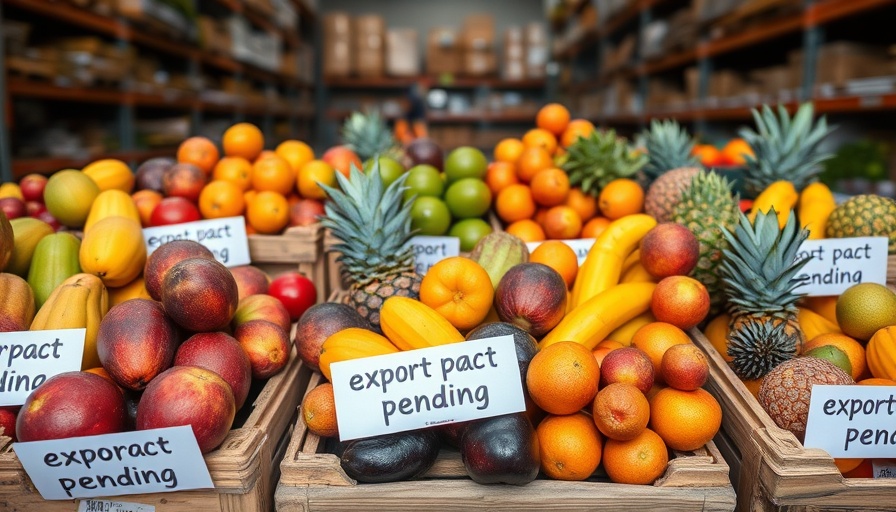
The EU's Strategic Shift: From Donor to Investor in Africa
In a remarkable pivot in its relationship with Africa, the European Union (EU) is investing significantly in the continent's infrastructure and economic stability. With a monumental investment of over €40 million allocated to modernize and rehabilitate the Douala–N’Djamena trade corridor, the EU is not just providing funds but is redefining the very nature of its partnership with African nations. This shift marks a move away from the traditional donor-recipient dynamic toward a more collaborative investor-driven approach.
In EU invests in Douala–N’Djamena corridor as it shifts from donor to investor in Africa, the discussion dives into the transformative role of infrastructure investments, exploring key insights that sparked deeper analysis on our end.
Understanding the Douala–N’Djamena Corridor
Strategically located, the Douala–N’Djamena corridor serves as a vital trade route between Cameroon and Chad. By enhancing this corridor, the EU anticipates smoother trade operations that will positively impact over 4.5 million people. The initiative includes pivotal projects such as the rehabilitation of the Lagoni River Bridge and the improvement of neighboring road infrastructures. These enhancements aim to bolster regional connectivity and economic growth, reflecting the EU's commitment to sustainable development in Africa.
Investment Beyond Infrastructure
This EU initiative goes beyond mere infrastructure; it encapsulates initiatives aimed at empowering local economies. Plans for agricultural production programs aim to enhance local capacities and support smallholder farmers, ensuring that investments translate into tangible benefits for communities in the region. By improving access to financing for microenterprises and women-led businesses, the EU's intervention stands as a holistic approach to economic development.
The EU’s Global Gateway Initiative: Setting a New Standard
Through the Global Gateway Initiative, which includes a €291 million guarantee program in partnership with the International Finance Corporation, the EU is strategically aligning its resources to support private sector growth across various regions, including Africa. The emphasis on creating a favorable regulatory framework alongside infrastructure development demonstrates an understanding that a conducive environment is crucial for sustainable growth.
Promoting Gender Equality through Financial Access
Women's access to capital remains a significant barrier across Africa, particularly in nations like Togo. The newly launched credit line aimed at women-led small and medium-sized enterprises (SMEs) seeks to address a staggering funding gap. As women entrepreneurs like Rebecca Nyan navigate the obstacles of accessing credit, such initiatives are pivotal for not only individual advancement but also for national economic resilience. Ensuring women have equitable access to financial resources will have ripple effects throughout African economies.
The Political and Economic Implications
The shift toward an investment relationship signifies a transformative approach in EU-Africa partnerships. It fosters a mutually beneficial alignment where both parties can harness collective resources for development. This model encourages shared responsibility and accountability, potentially fostering stronger diplomatic relations. By linking business interests with infrastructural investments, the EU is supporting the continent's drive for economic independence.
Conclusion: A Bold Step Forward
The EU's investment in the Douala–N’Djamena corridor represents more than just financial input; it is a crucial and transformative step forward in its evolving relationship with Africa. As we analyze these developments and their implications, it is essential for stakeholders, from governments to entrepreneurs, to engage actively in this evolving narrative. By facilitating growth through partnerships that prioritize sustainability and inclusivity, Africa is poised for an economically vibrant future.
This ongoing journey toward empowerment and growth urges professionals and investors alike to pay close attention to Africa's evolving economic landscape.
 Add Row
Add Row  Add
Add 




Write A Comment